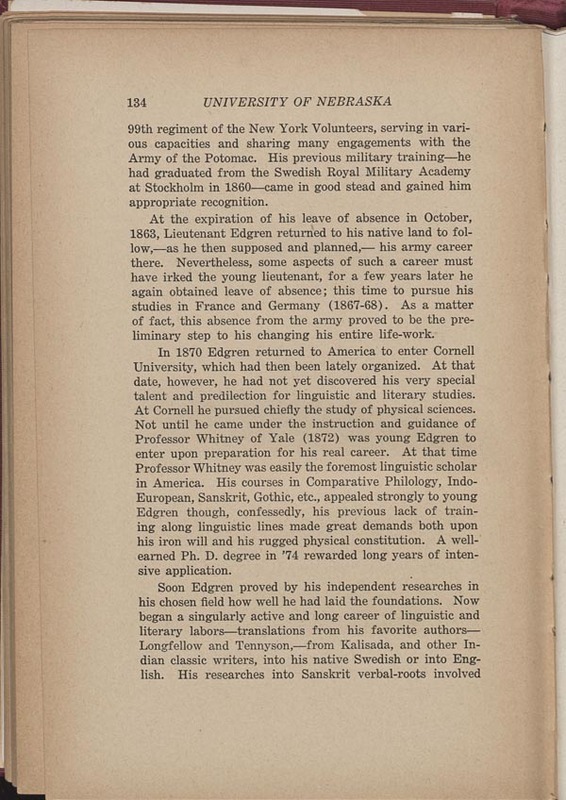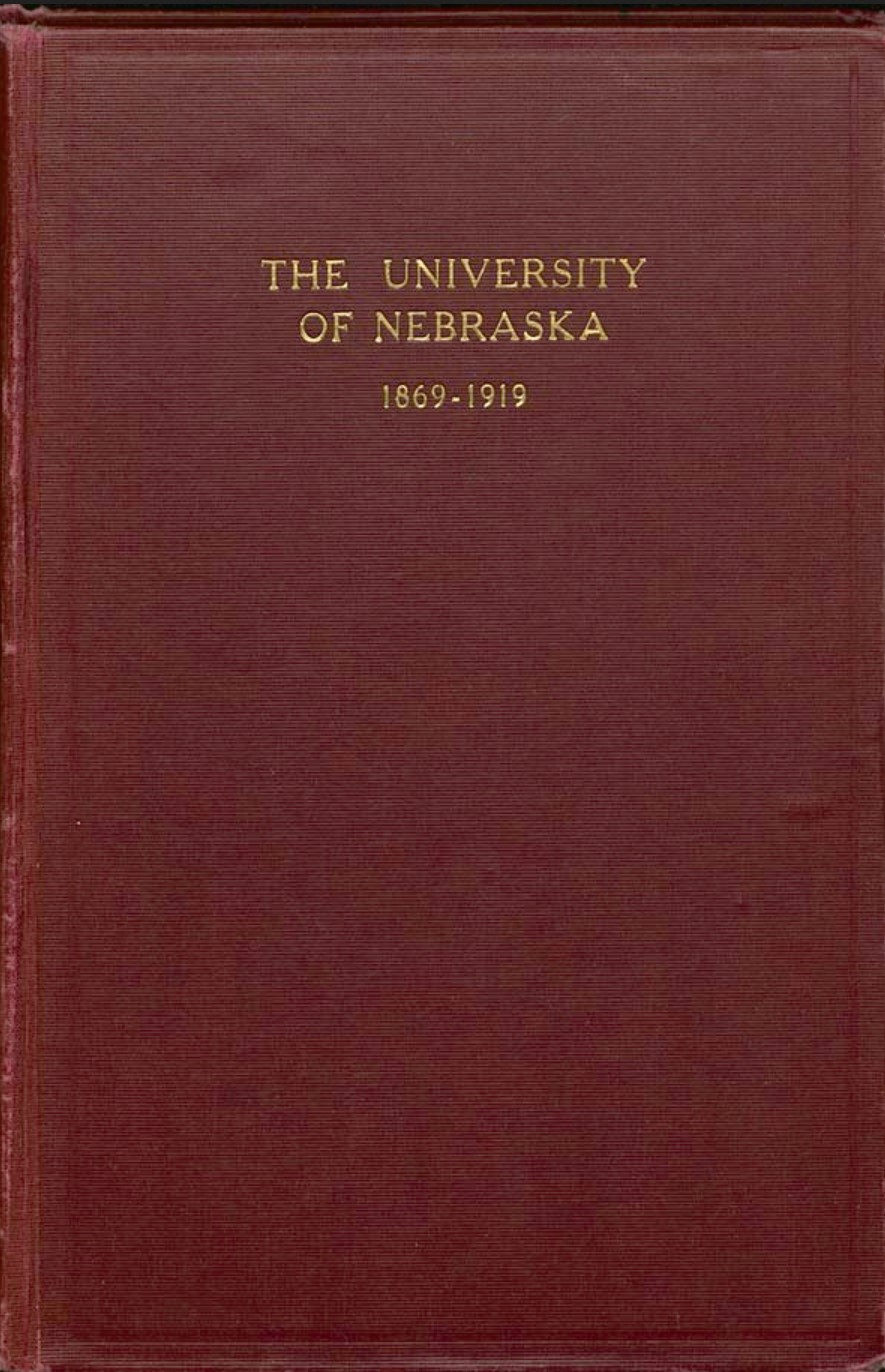144
Item
-
Title
-
144
-
Description
-
Semi-Centennial Anniversary Book: The University of Nebraska, 1869-1919
-
Transcription
-
99th regiment of the New York Volunteers, serving in various capacities and sharing many engagements with the Army of the Potomac. His previous military training—he had graduated from the Swedish Royal Military Academy at Stockholm in 1860—came in good stead and gained him appropriate recognition.
At the expiration of his leave of absence in October, 1863, Lieutenant Edgren returned to his native land to follow,—as he then supposed and planned,—his army career there. Nevertheless, some aspects of such a career must have irked the young lieutenant, for a few years later he again obtained leave of absence; this time to pursue his studies in France and Germany (1867-68). As a matter of fact, this absence from the army proved to be the preliminary step to his changing his entire life-work.
In 1870 Edgren returned to America to enter Cornell University, which had then been lately organized. At that date, however, he had not yet discovered his very special talent and predilection for linguistic and literary studies. At Cornell he pursued chiefly the study of physical sciences. Not until he came under the instruction and guidance of Professor Whitney of Yale (1872) was young Edgren to enter upon preparation for his real career. At that time Professor Whitney was easily the foremost linguistic scholar in America. His courses Comparative Philology, Indo-European, Sanskrit, Gothic, etc., appealed strongly to young Edgren though, confessedly, his previous lack of training along linguistic lines made great demands both upon his iron will and his rugged physical constitution. A well-earned Ph. D. degree in '74 rewarded long years of intensive application.
Soon Edgren proved by his independent researches in his chosen field how well he had laid the foundations. Now began a singularly active and long career of linguistic and literary labors—translations from his favorite authors—Longfellow and Tennyson,—from Kalisada, and other Indian classic writers, into his native Swedish or into English. His researches into Sanskrit verbal-roots involved
-
Rights
-
To inquire about usage, please contact Archives & Special Collections, University of Nebraska-Lincoln Libraries. These images are for educational use only. Not all images are available for publication.



